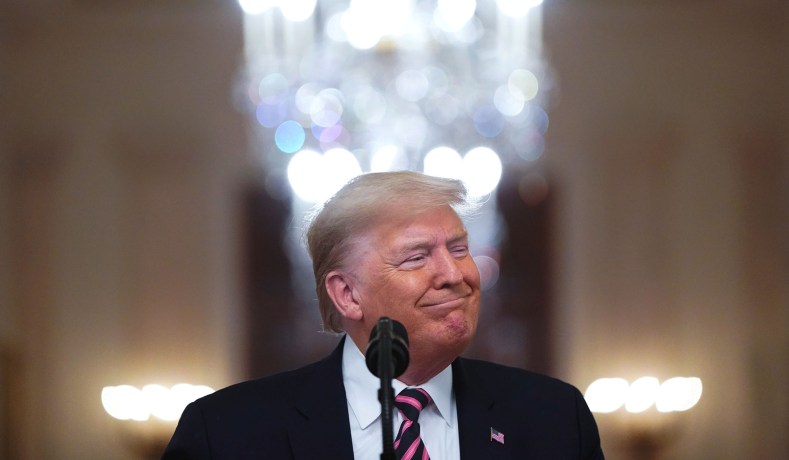
The brief but intense mania about the possibility of a presidential bid from convicted felon Michael Avenatti, and the current intense mania about the possibility of the Democrats nominating Michael Bloomberg suggest that some Democrats responded to the election of Donald Trump with not just rage, confusion, and horror but also with a bit of envy.
Trump came along and blew up almost all of the established rules for presidential candidates. He had never served in any elected office before. He had few strong allies in the existing Republican Party. He didn’t care about the details of policy, other than perhaps in immigration and trade. He chose to ad-lib or veered off-script at most of his speeches at rallies. His personal life had messy divorces covered in depth with the New York tabloids. He had his infamous “grab them by the” comments and the Christian Right largely stuck with him. He refused to pledge that he would endorse the nominee if he didn’t win. He didn’t release his tax returns or health records, and his note from his doctor, declaring that Trump would be “the healthiest individual ever elected to the presidency,” was a joke. His chaotic campaign went through three campaign managers.
And none of it mattered in the end, or none of it mattered enough to prevent his victory.
Politicians spend decades preparing to run for president. Democratic politicians, in particular, want to make money, but they generally try to avoid being perceived as rich. They get elected to lower offices, serve their time, try to avoid scandals, study the issues, practice their rhetoric and arguments until the focus groups nod in agreement, suck up to everyone in their party, and live in quiet fear that something in their taxes, personal finances, or personal lives will someday be revealed as a scandal. (Trump only experiences headlines about terrible scandals in days ending in a “y.”) The traditional path to the presidency generates a candidate like Michael Bennet: deputy attorney general, cabinet jobs, mayoral chief of staff, superintendent of Denver public schools, and eventually U.S. senator from Colorado. As Bennet’s campaign suggests, voters have no interest in a relatively scandal-free, wonky, experienced Washington lawmaker if he’s boring.
Perhaps in Bloomberg, Democrats have found their own version of Trump: a Manhattan billionaire who recently joined the party, gave generously to candidates in the other party, has his share of racial controversies and accusations of mistreating women, and smug disregard for anyone who disagrees with him, manifesting in comments like his contention that Colorado Springs and Pueblo are “a part of Colorado where I don’t think there’s roads.”
The thing is, once it became clear Trump would be the nominee, he figured out whom he absolutely needed to win over — pro-lifers, the NRA and gun owners, the Federalist Society — and quickly went about making nice. He promised traditional GOP goals like a big tax cut, a defense buildup, and energy independence. The rest of the Republican Party has largely acquiesced to Trump ever since; some would argue the rest of the party has become subservient.
Perhaps Democrats will elevate and acquiesce to Mike Bloomberg in a similar fashion. (The Bernie Bros look like a difficult challenge; Sanders’s national campaign co-chair labeled Bloomberg an “oligarch.”) If he beat Trump, he would end the Democrats’ current nightmare and do as they wished on gun control and climate change. But Bloomberg is skeptical of tax hikes on the rich (he wants to reduce, but not undo, the Trump tax cuts), opposes Medicare for All, he believes replacing private, employer-provided health insurance was financially impossible, and he’s a free trader. Bloomberg defended bonuses to traders at Wall Street firms that were being bailed out by the taxpayers. He has said he hopes the National Security Agency is reading every American’s email. He insists that China’s Xi Jinping is “not a dictator.” He’s called for raising the retirement age, and in 2013, Bloomberg said, “no program to reduce the deficit makes any sense whatsoever unless you address the issue of entitlements, Medicare, Medicaid, Social Security, and defense spending.”
Asking the Democrats to nominate Bloomberg to stop Trump is asking them to give up a lot on a variety of fronts.




